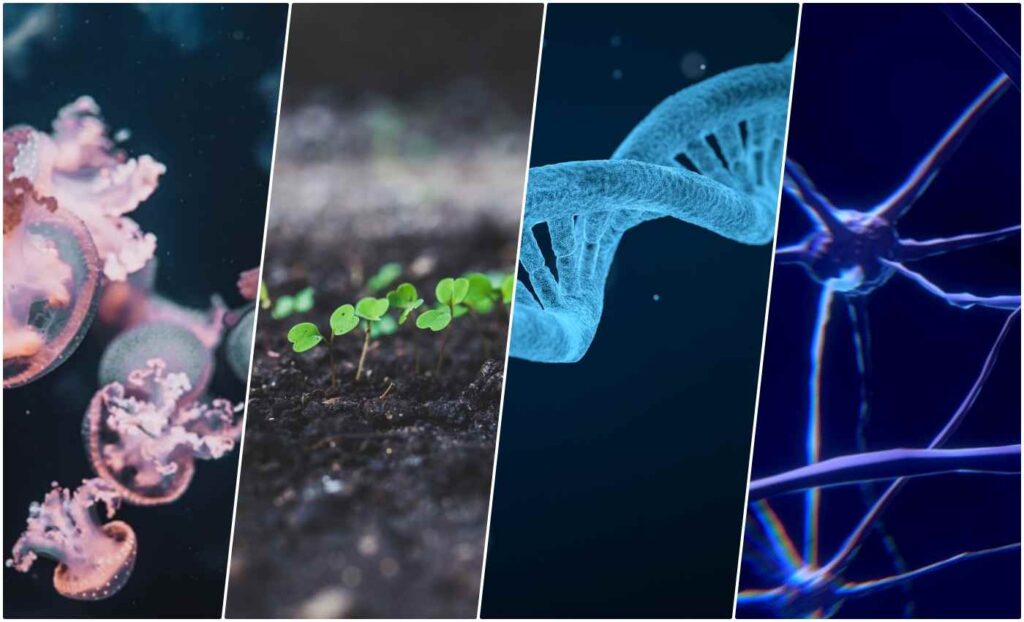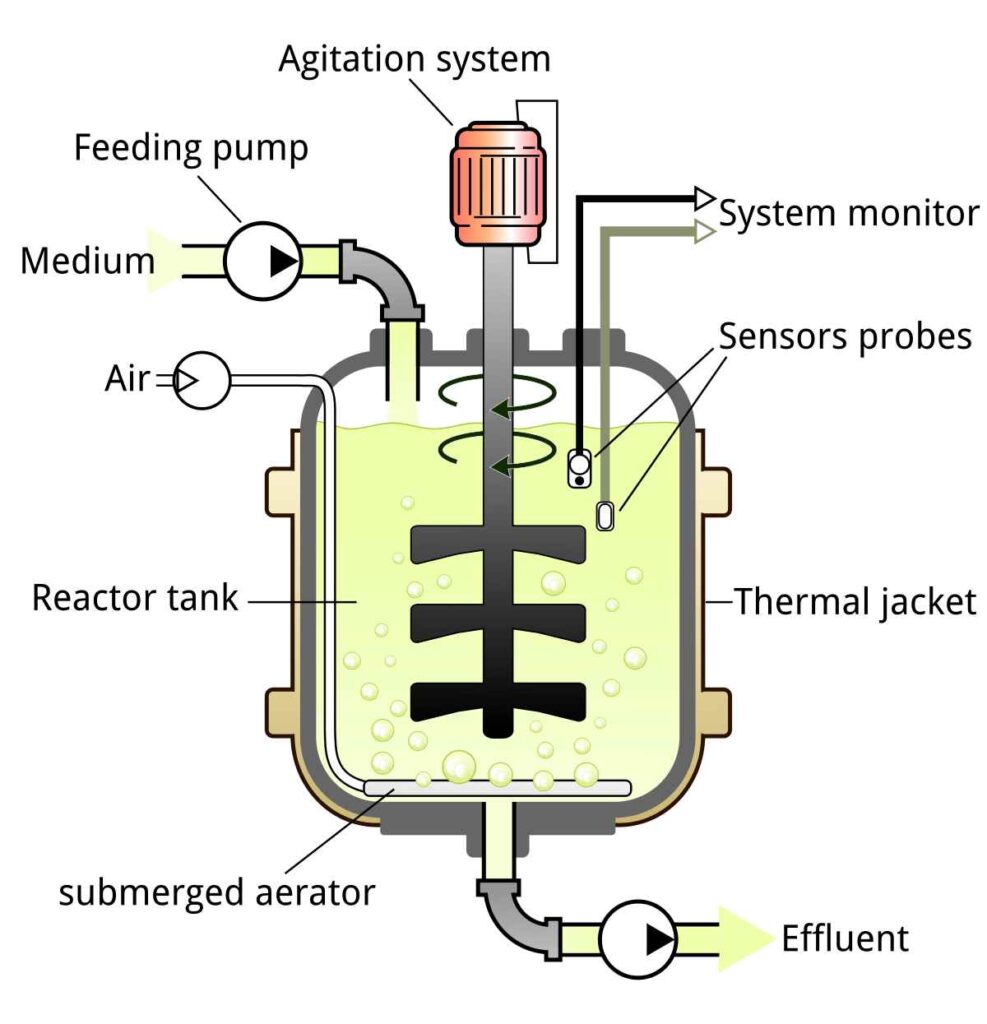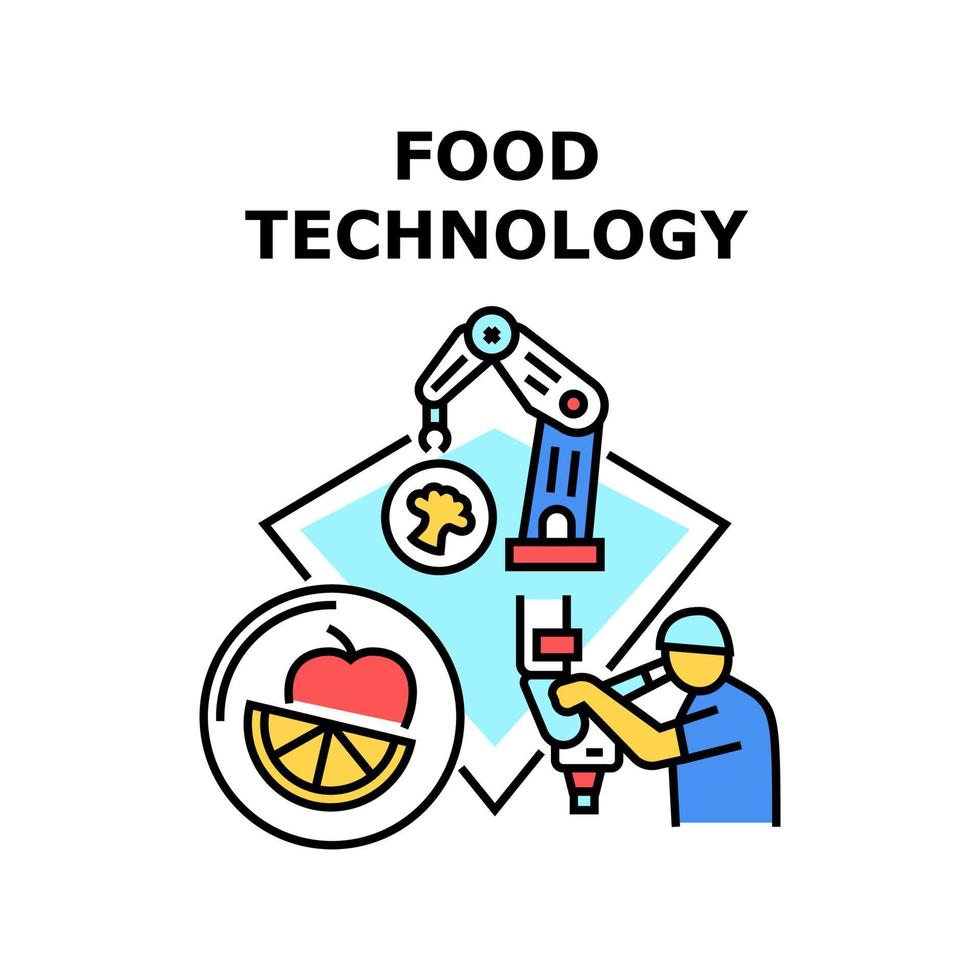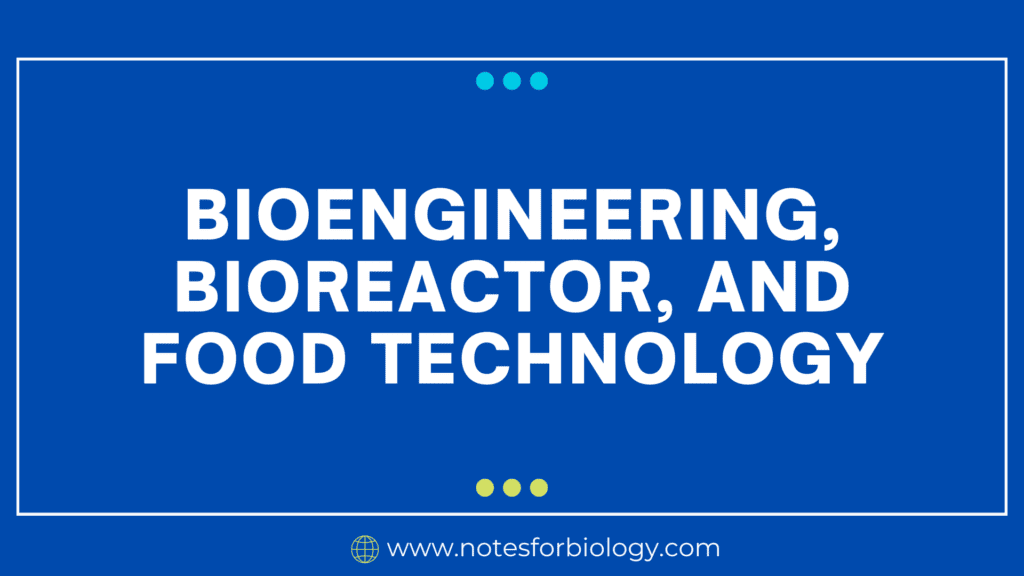What is Bioengineering, Bioreactor, and Food Technology?
The topics of bioengineering, bioreactors, and food technology are closely related and are transforming the food production and consumption processes. Let’s explore each topic and see how they are related to one another.
Table of Contents
The Foundation of Bioeng.“

Engineering concepts are applied to biological systems in it. When it comes to cuisine, it includes:
Genetic engineering: It is the process of modifying genes to produce desired characteristics in livestock and crops, such as higher production, higher nutritional content, and resistance to disease.
Metabolic engineering: It is the process of altering microorganisms’ metabolic pathways to create useful dietary ingredients including probiotics, vitamins, and enzymes.
Tissue engineering : It provides morally sound and environmentally friendly substitutes for conventional animal husbandry by cultivating meat and other animal products in vitro.
Bioinformatics: The study and analysis of biological data through the use of computational tools to build more effective food production systems.Bioinformatics is an exciting field that analyses biological data using computational methods and tools. Consider it as a link between computer science and biology that enables us to comprehend the intricate chemical processes that underlie life.
Bioreactors: The Production Engines

They are containers made to grow and cultivate microorganisms, tissues, or cells in regulated conditions. They are essential for:
Fermentation: The process of employing microorganisms to produce fermented foods like cheese, yoghurt, and bread.
Cell culture: The process of growing animal cells for the production of meat, biopharmaceuticals, and food ingredients. The technique of growing cells outside of their native environment, usually in a controlled laboratory setting, is known as cell culture.
Enzyme production :It is the process of using microorganisms to manufacture enzymes that are then utilised to digest food and improve its nutritional value.
Food Technology: Integrating Everything

The development and processing of food using scientific and engineering principles is referred to as food technology. It integrates,
Increasing food safety: Increasing food safety by lowering contamination and deterioration by using methods like asepsis packing and radiation.
Enhance Nutritional Value: Create nutrient-dense substitutes and add vitamins and minerals to food.
Create novel foods : Designing plant-based meat substitutes, sustainable protein sources, and individualized dietary plans are all part of the process of creating novel foods.
Optimize Food Processing: Creating economical and practical techniques for the production, distribution, and storage of food.
The Power of Collaboration
These three disciplines complement one another:
By creating new instruments and methods it, stimulates innovation.
Large-scale manufacturing of organisms and goods is made possible.
Innovations in it are integrated with food technology to provide novel and enhanced food items.
Looking Ahead
Thanks to the advancements, the future of food looks bright. Something to expect is:
Reducing reliance on conventional animal agriculture and minimizing environmental damage will result in more ethical and sustainable food systems.
Dietary plans made to fit each person’s requirements and tastes.
Enhanced resilience and efficiency in food production will lead to increased food security.
Together, these domains have a great deal of potential to address the world’s food problems and create a future where everyone can eat healthily and sustainably.
Frequently Asked Questions(FAQ)
Define genetic engineering?
It is the process of modifying genes to produce desired characteristics in livestock and crops, such as higher production, higher nutritional content, and resistance to disease.
Write about Enzyme production ?
It is the process of using microorganisms to manufacture enzymes that are then utilised to digest food and improve its nutritional value.
Define Bioinformatics?
The study and analysis of biological data through the use of computational tools to build more effective food production systems.
Related Articles

